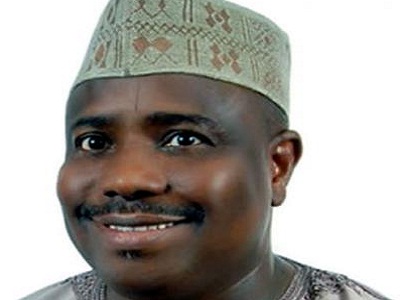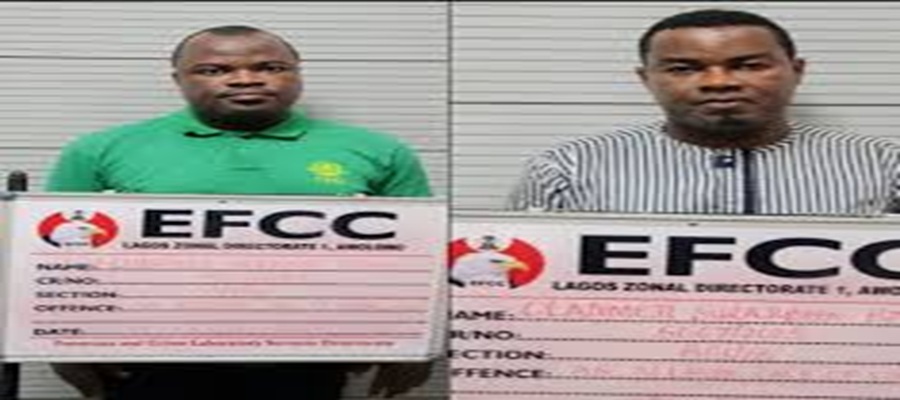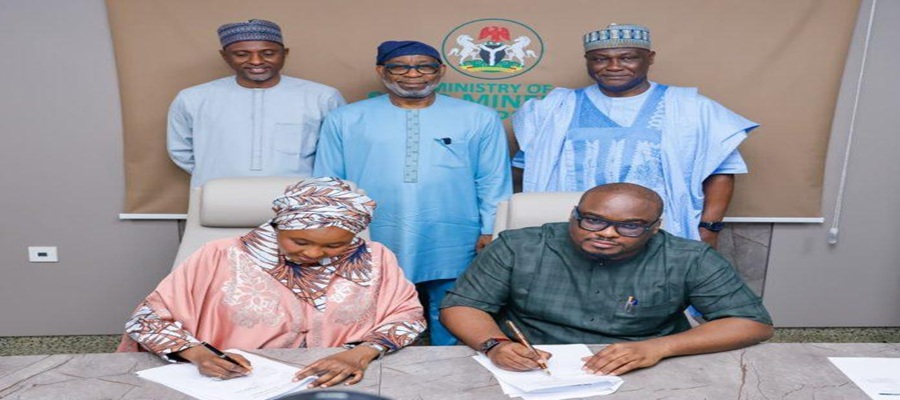News
Reps Accuse FG of Spending N4.7trn Without Approval

House of Representatives Committee on Public Accounts, at the weekend, accused the Federal Government of spending about N4.7 trillion from 2004 to 2012 from the Service-wide vote without the approval of the National Assembly, as stipulated in section 80 of the 1999 Constitution as amended.
Adeola Solomon Olamilekan, chairman of the Committee, who stated this while briefing, also accused the government of former President Olusegun Obasanjo of expending N250 million to feed former president of Liberia, Charles Taylor and his family, who were on an asylum in the country between 2005 and 2006.
Olamilekan, while speaking on the alleged abuse of the Service-wide Vote, maintain that, “most of the expenditures to which the Service-wide Vote releases were deployed were routine in nature and did not qualify for emergency funding.”
According to him: “For instance, between 2004 and 2012, a total sum of N1, 284,853,731.20 was spent on publicity and publication of various government programmes; between 2004 and 2005, the sum of N250 million was spent on the upkeep of the former Liberian president, Charles Taylor; another sum of N14,006,494.847.57 was also released from the Service-wide Vote for the payment of judgment debts against the Federal Government.
“The Office of the Accountant-General of the Federation, Budget Office and the Ministry of Finance released to their various offices, a total sum of N2, 267,002,101 to a few auditors are audit fees and in 2011 alone, the Office of the Accountant-General of the Federation paid out the sum of N809,358,504 as audit fees to some external auditors carrying out audit of the Federal Government financial activities instead of the Office of the Auditor-General for the Federation”.
Speaking further, he maintained that, “the expenditure of N162 million from the 2011 Service-wide Vote releases tagged: “Closing Accounts” was incurred jointly by the Office of the Accountant-General and the Budget Office of the Federation,” adding, “an expenditure of N1,059,177,589.31 ($6,619,859.93 at the rate of $1=N160) in 2010 and 2011, was said to payment of outstanding tax on Nigeria House in New York.”
He added that: “Successive governments have, from 2004 to 2012, spent a whopping and mind-boggling sum of N4.17 trillion, as against N1.8 trillion naira approved by the National Assembly as Service-wide Vote component of the budgets of those years, translating to N2.27 trillion extra budgetary spending or 220% above the Service-wide Vote as approved in the budget for the period.” Such extra-budgetary expenditures constitute a breach of Section 81 of the Constitution of the Federal Republic of Nigeria, 1999 (as amended) and an illegality.”
He stressed that, “the Service-wide Vote had become an alternative budget which government prefers to patronise than the annual budget, leading to poor implementation of the annual budget as approved by the National Assembly.”
News
EFCC Arraigns Two FSDH Bank Officials Over $307k, €50k Fraud


EFCC
News
AfDB Supports Francophone Africa Start-ups with €6.5M

The African Development Bank Group last week approved an investment of €6.5 million in the Saviu II fund in order to support technology start-ups through their seed phase and first institutional fundraising, mainly in French-speaking Central and West Africa.

The Bank will invest €4.5 million as equity and €2 million as a first-loss hedging tranche on behalf of the European Commission, under the Boost Africa Programme.
This participation of the Bank Group will enable the Saviu II fund to give priority to companies with a strong technological or digital component.
Saviu II, the second investment vehicle of Saviu Partners, plans to invest between €500,000 and €3 million in about 20 technology or technology-oriented business-to-business start-ups in the seed phase or carrying out first institutional fundraising.
The Saviu II venture capital fund aims to make at least 60% of its commitments in the French-speaking countries of West and Central Africa: Côte d ‘Ivoire, Cameroon, Benin, Senegal, Togo, Burkina Faso and Mali.
The fund can also co-invest in promising technology companies in East Africa that have a strong team and business model, and whose strategy includes entering the market in French-speaking West African countries and establishing a strong presence there.
In addition, the fund will devote a dedicated envelope to pre-seed investments, focusing on minority equity investments, usually in co-investment with studios, incubators or other ecosystem partners.
News
Nigeria Inks $1.3bn MoU with AFC for Alumina Refinery, Mining Push

Nigerian Government has signed a $1.3 billion Memorandum of Understanding (MoU) with Africa Finance Corporation (AFC) via the Solid Minerals Development Fund (SMDF) to fund an alumina refinery, national geoscience mapping, and a strategic investment vehicle for mining growth.

Special Assistant to the Minister of Solid Minerals Development, Segun Tomori, said the refinery will process one million tonnes of bauxite yearly using a modern Bayer process, powered by an on-site gas-fired cogeneration plant.
Minister Dele Alake called it a transformative milestone boosting GDP, aligning with reforms that improve investment climate, regulations, and licensing to attract private capital. He directed agencies to fast-track permits.
The 20-year project at 95% utilization eyes 19 million tonnes total output, $1.2 billion annual GDP addition, $25 billion economic impact, and $8 billion forex earnings, per feasibility studies.
SMDF Executive Secretary Fatima Shinkafi termed it the agency’s biggest funding deal, supporting value-addition policy.
The partnership extends to geoscience mapping for mineral data, de-risking exploration, and a joint vehicle for mining assets.
Permanent Secretary Engr. Farouk Yabo praised the reforms. Shinkafi signed for government; AFC’s Franklin Edochie for the corporation, witnessed by AFC CEO Samaila Zubairu.
Tomori positioned it as Nigeria’s largest private mining investment and FDI magnet.

 E-Financial3 days ago
E-Financial3 days agoIran-Israel-US Conflict and CBN’s FX Gains: A Stress Test for Nigeria’s Monetary Stability

 E-Financial3 days ago
E-Financial3 days agoMutual Benefits Assurance Reaffirms Full Regulatory Compliance, Enhanced Governance

 General News3 days ago
General News3 days agoJAMB Uncovers AI-Driven Fraud Targeting UTME Candidates, Warns Parents

 General News3 days ago
General News3 days agoSERAP Asks FCCPC to Investigate Google, Meta, Others over Alleged Rights Abuses

 Telecom2 days ago
Telecom2 days agoSunil Bharti Mittal Conferred GSMA Lifetime Achievement Award for Transforming Global Telecommunications

 News3 days ago
News3 days agoTeamApt, Awabah Partner to Boost Pension Drive for Nigerians

 News3 days ago
News3 days agoFlashChange CEO, Bidemi Oke, Urges Startups to Build Strong Governance Structures Early

 Telecom2 days ago
Telecom2 days agoWhy Digital Trust Matters: Secure, Responsible AI for African SMEs?


























